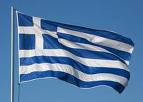
I wouldn't press that "Sell" button if I were you, Monsieur.

I wouldn't press that "Sell" button if I were you, Monsieur.
A document leaked to us by a secret source has revealed that the French DGSE and the German BND have assembled a series of secret teams to “deal” with stroppy dealers targeting Eurozone countries.
Under the codename Operation Gekko, the task force is currently getting ready to make a number of traders “disappear” as a warning to other traders about over pricing bonds to Eurozone countries. The document also suggests that a Eurozone version of Guantanamo Bay has been set up in Northern Finland to hold the detainees, where they’ll be fed a diet of organic vegetables and tofu and made watch the films of Michael Moore and Jean Luc Goddard.
The Champs Elysee has declined to comment other than to say “You want to know what the secret service are up to? What are you asking us for? Ask them. And tell us what they say. Actually, if it’s about blowing up stuff, or sinking ships, better not.” A source in the Bundeskanzler’s office in Berlin said: “There is no such operation, and such an operation would not use three environmentally sound low emission helicopters nor would it have purchased a thousand square miles of Swedish forestry to make up for the carbon footprint it didn’t generate.”






